A bit late, here’s my July reads:
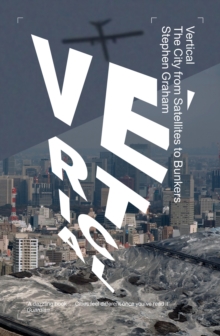
Vertical: The City from Satellites to Bunkers by Stephen Graham is a really interesting look at city/geography/social studies/urban studies from the vertical perspective, rather than the predominant 2D horizontal perspective of most maps and accounts of urban life. He covers everything from satellites and drones, skywalks (such as the one in Minneapolis), skyscrapers, elevator technology, favelas, to sewers, bunkers and mining. Using a lot of different cities to illustrate his points (Dubai, London, Toronto, Sao Paolo, Minneapolis, New York, Johannesburg and many many others) this is a scholarly but extremely accessible account of the issues facing the world as urban growth continues ever upwards and downwards. I found it fascinating, and I’m sure I’ll come back to it again. I did though have to dock half a star for the poor proofreading – not so much spelling errors, but missing or additional words were far more frequent than they should have been (and this is not something I usually experience with books published by Verso). 4/5.
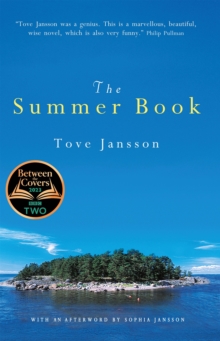
Best known for her creations the Moomins, The Summer Book is one of Tove Jansson’s novels for adults, and reportedly her favourite. The author owned and lived for many years on a small island in the Gulf of Finland, and this book is the story of a family (primarily grandmother and granddaughter, Sophia – reportedly based on the author’s mother and niece) who live on such an island. It is absolutely delightful – there is no plot as such, and really very little happens. Each chapter is a vignette of a conversation or observation or event in the family’s life on the island. It was perfect holiday reading. I was a bit worried that it might be a bit twee, but as it features meditations on ageing, bereavement, environmental damage etc (while never bashing the reader over the head with these things), it never descended into the saccharine. Fabulous. 4.5/5.
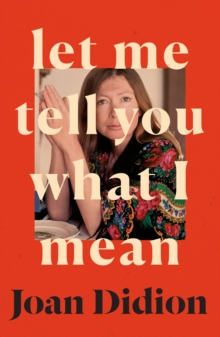
This month’s library book was Joan Didion’s Let Me Tell You What I Mean, a collection of 12 essays, mostly from the beginning of her career (from the late 60s/early 70s) plus some newer ones from the 90s/early 2000s. She covers subjects such as a Gamblers Anonymous meeting, meeting Nancy Reagan, Ernest Hemingway’s posthumous publications, writing, and more. I think the piece on Nancy Reagan and the first one on writing were my favourites – I have found, from the few essays of Didion’s that I have read, that I feel a step removed from her, but in these pieces I did feel she offered a bit of herself, and was more relatable. 3.5/5.
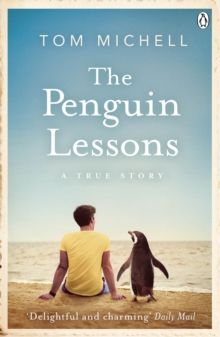
Tom Michell’s The Penguin Lessons is a charming memoir of the author’s time in Argentina in the late 1970s, working in a boarding school for boys near Buenos Aires, and specifically of the penguin he rescues from an oil slick while on holiday in Uruguay, which he ends up taking back to the school where it becomes beloved of staff and students alike. It could have been a bit mawkish, but I think was saved from that by the author’s own musings on whether or not he was doing the best thing for the penguin (named Juan Salvado), and also whether or not he was anthropomorphising the interactions with the bird. He attempts to find an appropriate place for Juan Salvado, firstly at Buenos Aires zoo (which he decides against once seeing the lethargic, underfed, and unstimulated penguins there), and then at a penguin colony 1000+km away on the south coast (impractical after the only means of bringing the penguin there, his unreliable motorbike, breaks down in the middle of nowhere), but Juan Salvado seems in no rush to leave and enjoys the company of the boys and staff who treat (and feed) him well. A nice light read. 3.5/5.
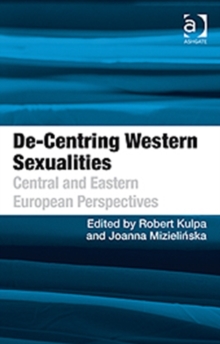
De-Centring Western Sexualities : Central and Eastern European Perspectives, edited by Robert Kulpa & Joanna Mizielinska, is one of several academic books that came out towards the end of my PhD and which I bought with the intention of continuing my scholarship and staying up to date with relevant books and articles in the field. That didn’t happen, and I only ever got round to reading and citing the chapter that was particularly relevant to my PhD, by Shannon Woodcock. I’m pleased I finally managed to read the rest of the book, this is still a really interesting look at the state of LGBT/queer lives in CEE from social/cultural/academic perspectives, arguing that Western-focused activism and academic priorities don’t capture the nuances of the situation in Central & Eastern Europe, and indeed that studies from the region add to and problematise the academic canon. I still think that Shannon Woodcock’s chapter was my favourite (probably because the specific context of Romania was more familiar to me), but the whole book is excellent, and a decade on from publication still important for CEE scholars. 4/5.
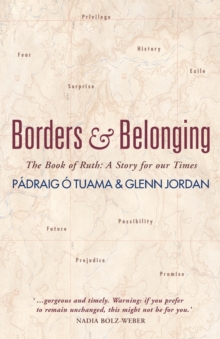
Borders and Belonging: The Book of Ruth: A Story for our Times by Padraig O Tuama and Glenn Jordan is a short but really important book. Both authors worked for the Corrymeela Community in Northern Ireland, working across the religious and sectarian divide to promote reconciliation and peace. After the Brexit vote of 2016, where once again the issue of borders, and the potential for conflict, became (and still is) a huge issue, they carried out a series of workshops across Ireland and Great Britain, using the Biblical book of Ruth as the foundation to their discussions about borders and belonging, migration and prejudice, and this book is the result. They write alternate chapters, Glenn is the theologian and Padraig the poet, and both bring different aspects of the story to the discussion. Brexit is only mentioned sparingly, but it is easy to see how the lessons of the book of Ruth can be applied and interpreted in the light of Brexit. A very thoughtful, accessible and important book. 4.5/5.
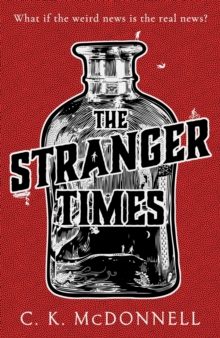
C.K. McDonnell’s The Stranger Times is the first book in a trilogy (the next one is out in early 2022, I believe), and I can’t wait for the next book having raced through this one. Hannah, down on her luck, accepts a job at The Stranger Times (basically a knock-off of The Fortean Times), despite never having any journalistic experience and having a bunch of oddball colleagues – alcoholic editor Vincent Banecroft, Reggie the ghost hunter, Ox the UFOlogist, Grace the devout Christian office manager, Stella the teenage office assistant, and Manny the permanently stoned printman, plus Simon the nerdy teenager who’s desperate for a job at the paper and spends his life at the door trying to get in. Strange and dark goings-on soon show Hannah that there is more reality to the world the paper reveals than you might think, and the intrepid newspaper employees investigate the murder of one of their own, coming face to face with darker forces than any of them thought possible. This review really doesn’t do justice to how funny this book is, I loved it, and sniggered my way throughout it – think the film Men in Black meeting Terry Pratchett, and set in the grimier bit of Manchester. As the first in a trilogy it probably does spend a bit longer than some books establishing the characters and the world, but it is worth persevering, the reward is well worth it. 5/5.
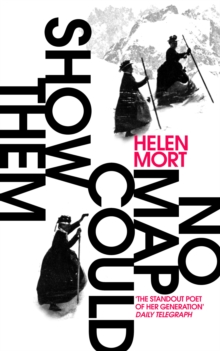
One of my rare forays into poetry, thanks to the library! Helen Mort’s second collection, No Map Could Show Them, celebrates women who dared break new ground, particularly around mountain climbing, from a young Yorkshire woman who climbed the Swiss Alps in crinoline, to Alison Hargreaves, a mountaineer just a few years older than me who died in her early 30s while descending from the summit of K2 in the 1990s.
As is often the case with poetry, I could tell that the language was clever and beautiful, but couldn’t entirely always grasp what was going on. The set of poems about Alison Hargreaves was lovely though, I wonder if I related more to them because I knew what had happened to her. 3/5.
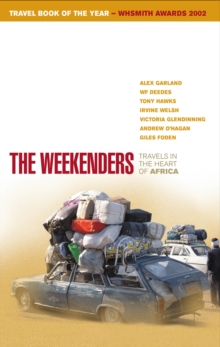
The Weekenders: Travels in the Heart of Africa is an anthology of short stories and non-fiction essays from 2001 which I think has been on my shelves from the early 2000s (it had probably been out a year or two when I got it, but it’s definitely pre-2005). British Newspaper the Daily Telegraph took 7 authors and journalists to southern Sudan and then collected the works the trip inspired into this book, the proceeds of which went towards aid projects in Sudan. Several of the authors are very well-known names – Alex Garland, Tony Hawks, Irvine Welsh, Andrew O’Hagan, Victoria Glendinning, Giles Foden – plus veteran Telegraph journalist WF Deedes – so the quality of writing was very high throughout, there wasn’t a single dud chapter (not something you can say very often about anthologies). I must admit I’d bought it thinking that it was a straight-up travel book (and I’d already read the Tony Hawks chapter which is reproduced in his book One Hit Wonderland), so I was surprised to find that most of the pieces were actually short stories, including the chapter by Deedes. It was only Tony Hawks’ chapter (about trying to find a musician to record a song with) and the final one by Victoria Glendinning (about the pros and cons of aid and development efforts) which were non-fiction, most of the others were short stories, and then about half the book was taken up with a novella by Irvine Welsh, which was as brutal and challenging (and sometimes darkly funny) as you’d expect from him.
To be honest, most of the short stories were good but not especially memorable, but the Irvine Welsh story will stay with me a long time. I enjoyed the two non-fiction pieces, and actually reading Glendinning’s overview of the history and politics of the Sudan conflicts, as well as issues regarding aid and development, it was easy to see where elements of the fictional accounts had got their inspiration, so that was a really good way to round off the book.
I did feel a bit uncomfortable reading stories by white Westerners about black and brown Africans and their conflicts, but the honest wondering about what good is being achieved and what problems are being created by Western aid and development efforts in Glendinning’s piece did redeem it. I don’t think what was being discussed is anything new in aid and development circles, even 20 years ago, but I appreciated that they did at least air the debate. 3/5.
